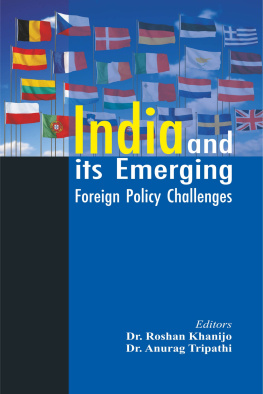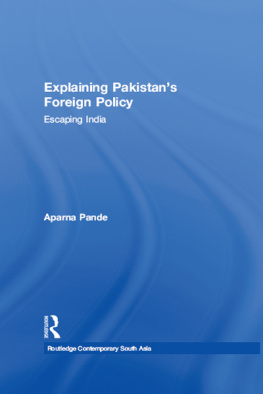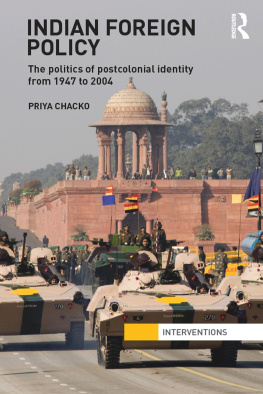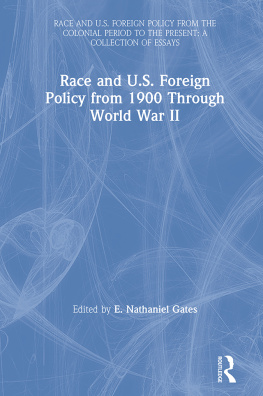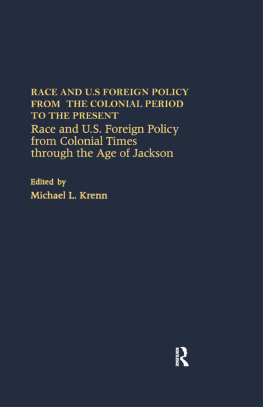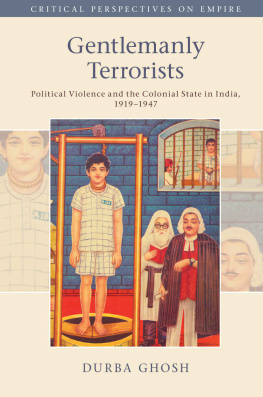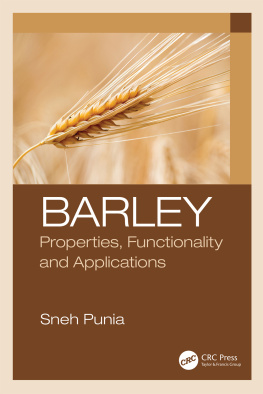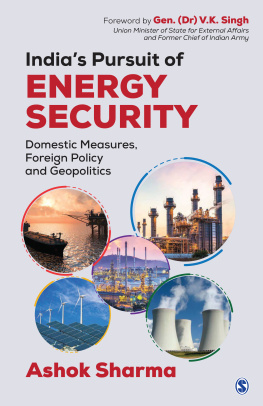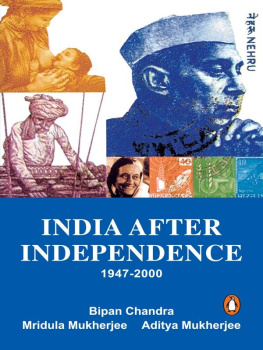
Foreign Policy of Colonial India
The foreign policy of a colonial country is very different from that of a sovereign country. Two features of the foreign policy of colonial India were: one, that it was framed in the interest of Britain; and two, that till the very end, the British showed an unflinching determination to maintain their hold on India.
This book highlights the weight and significance of India in global affairs because of its huge size, richness of resources, and geostrategic and relational positioning. After independence, India inherited a whole set of notions and practices from the colonial past especially treaty arrangements with smaller neighbours; the nature of interactions with its extended neighbourhood; unresolved border disputes in the north; and the imperatives of ensuring Indias security both on its land and maritime frontiers. In the twenty-first century also, as a rising India reconstructs its foreign policy, some of the themes of the foreign policy of colonial India demand far greater attention. This book provides a model for studying the foreign policies of colonies in the global south. Covering the last fifty years of British rule in India, it focuses on the relations of the Government of India with states along the territorial rim of Britains Indian Empire and the regions along the routes that connect Britain with India.
Scholars have written hundreds of books on the foreign policy of India since 1947. But, during the last fifty years, virtually no general book has appeared on the period before 1947. This pioneering work aims at filling this hole. It will be of interest to journalists and academics in the fields of modern history, political science, international relations and colonial history of India and South Asia.
Sneh Mahajan was Associate Professor of History at Indraprastha College, Delhi University. She was also Senior Academic Fellow at the Indian Council of Historical Research, New Delhi. In 2012, she was elected President of the Non-Indian History Section of the Indian History Congress held at Mumbai. Her research interests include international history, modern Indian history, British foreign policy and strategy, and imperial history. She is the author of British Foreign Policy: The Role of India 18741914 (Routledge).
Routledge Studies in South Asian History
The Formation of the Colonial State in India
Scribes, Paper and Taxes, 17601860
Hayden J. Bellenoit
Health and Medicine in the Indian Princely States
18501950
Waltraud Ernst, Biswamoy Pati and T.V. Sekher
Class Conflict and Modernization in India
The Raj and the Calcutta Waterfront (18601910)
Aniruddha Bose
Imperialism and Sikh Migration
The Komogata Maru Incident
Anjali Gera Roy
Politics and Left Unity in India
The United Front in Late Colonial India
William Kuracina
Citizenship, Community and Democracy in India
From Bombay to Maharashtra, c. 19301960
Oliver Godsmark
India and World War I
A Centennial Assessment
Roger D. Long and Ian Talbot
Foreign Policy of Colonial India
19001947
Sneh Mahajan
For a full list of titles in this series, please visit www.routledge.com
Foreign Policy of Colonial India
19001947
Sneh Mahajan
First published 2018
by Routledge
2 Park Square, Milton Park, Abingdon, Oxon OX14 4RN
and by Routledge
711 Third Avenue, New York, NY 10017
Routledge is an imprint of the Taylor & Francis Group, an informa business
2018 Sneh Mahajan
The right of Sneh Mahajan to be identified as author of this work has been asserted by her in accordance with sections 77 and 78 of the Copyright, Designs and Patents Act 1988.
All rights reserved. No part of this book may be reprinted or reproduced or utilised in any form or by any electronic, mechanical, or other means, now known or hereafter invented, including photocopying and recording, or in any information storage or retrieval system, without permission in writing from the publishers.
Trademark notice: Product or corporate names may be trademarks or registered trademarks, and are used only for identification and explanation without intent to infringe.
British Library Cataloguing-in-Publication Data
A catalogue record for this book is available from the British Library
Library of Congress Cataloging-in-Publication Data
A catalog record has been requested for this book
ISBN: 978-0-8153-9396-2 (hbk)
ISBN: 978-1-351-18695-7 (ebk)
Typeset in Times New Roman
by Apex CoVantage, LLC
The foreign policy of India before independence has not been studied as a coherent whole for almost half a century. I was fascinated by the idea of writing a book on this subject and remained convinced of the usefulness of such a venture. For over three decades, I have been engaged in research and writing on different aspects of this project. On this book, I have worked intensively since 2011.
I have many to thank for their encouragement, for going through drafts, for providing suggestions, and for just being there for me. Amongst these, I wish to record my thanks to Narayani Gupta, C. Raja Mohan, Veena Sachdev, Veena Arora, Renu Maira, TCA Rangachari, Anshu Dogra, Preeti Singh, B. N. Pandey, and Indu Bala Khanna. A book such as this could hardly be written without drawing on the vast body of knowledge that exists on the subject. I have benefitted immensely from this scholarship though much of it remains inadequately acknowledged in the references that accompany the chapters.
I am indebted to the Indian Council of Historical Research for granting the Senior Academic fellowship and for funding research on this project during 201113. Earlier also the Indian Council of Historical Research had provided Research Project Grant which enabled me to carry on research on this subject in the repositories in London. I also wish to thank Dr Babli Moitra Saraf for agreeing to make Indraprastha College the institution of affiliation and for providing facilities for research in College.
I wish to express gratitude to the custodians and staff members of various archives and libraries where most of the research on this project was carried out. In London, I have worked extensively in the National Archives of England, Wales, and the United Kingdom (formerly the Public Records Office), the British Library (which now houses the records of the India Office Library as well), and the British Library of Political and Economic Science (commonly referred to as LSE Library). At Delhi, I have been engaged in research at the National Archives of India, the Nehru Memorial Museum and Library, the Indian Council of Historical Research Library, the Library of the Historical Division of the Ministry of Defence, Indraprastha College Library and Manana: The Devahuti-Damodar Library. I am deeply obliged to Jyotsna Arora, Deputy Director of the Indian Council of Historical Research Library, for very cheerfully assisting in research and providing access to books and articles that I could not locate; and to Bihari Lal Varma of Manana for making books available to me from different repositories in Delhi. I have liberally used wonderful tools available now in the form of search engines such as Google and sites such as Wikipedia to get up to date information, to access articles in journals which are not available in India, and to check facts.





